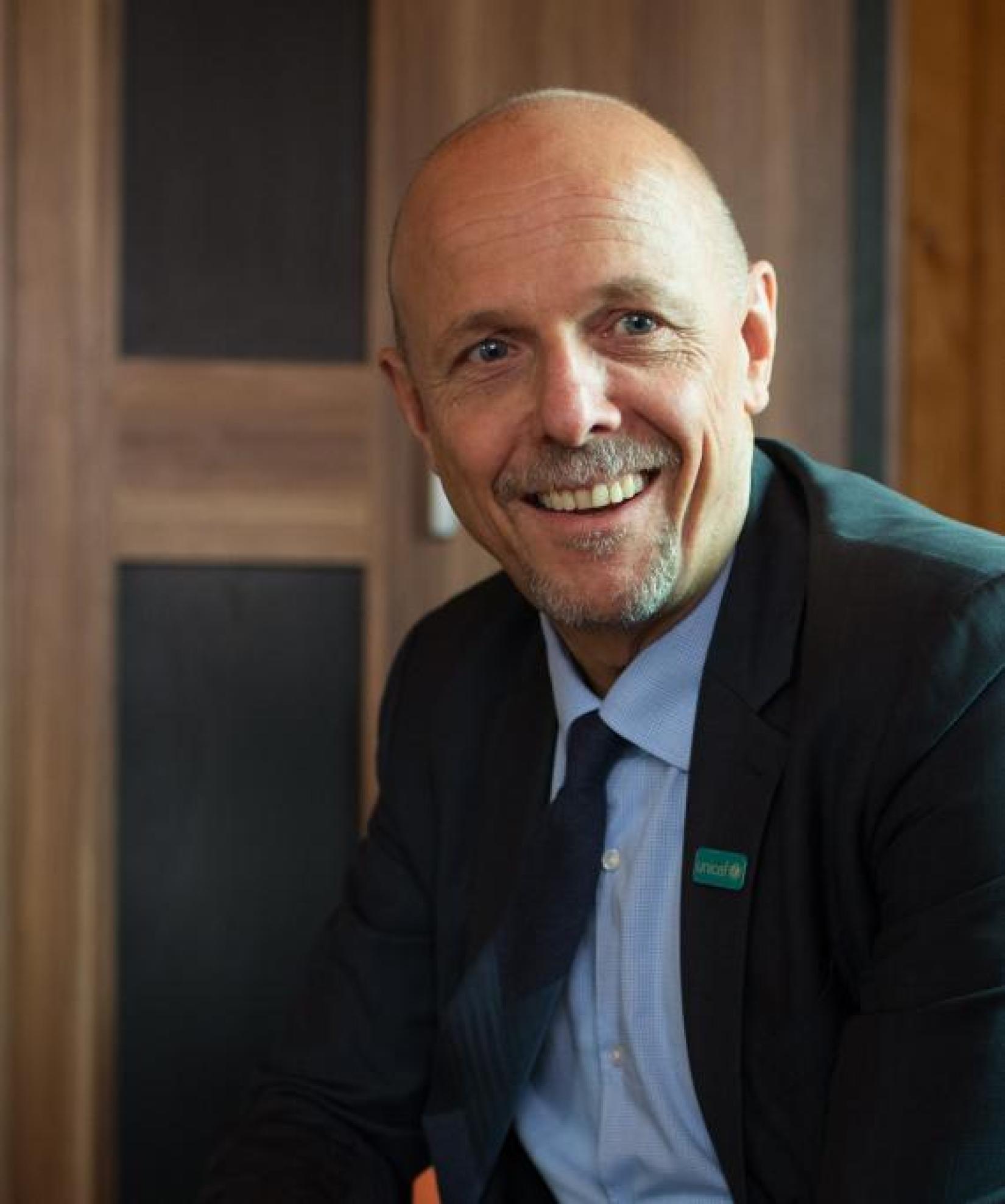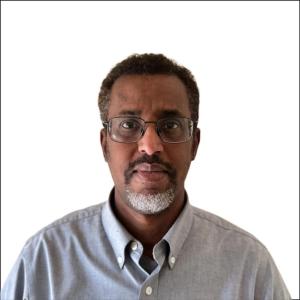The climate is changing our children: This is a child rights crisis | UNICEF World Children's Day Op Ed
20 November 2023
The climate is changing our children: This is a child rights crisis
Op-ed piece by Mr Pieter Bult, Representative for UNICEF’s Office for the Eastern Caribbean Area on the occasion of World Children’s Day, 20 November 2023.

World Children’s Day, celebrated every year around the globe on 20 November, is a time for children to take action, put themselves centre stage and demand that we listen. They are clear-sighted about their wants and needs and how to achieve them. They require this clarity of vision in a world where the climate crisis is emerging as the greatest threat to their collective future.
Young people are on the front line of an ever-worsening climate that menaces their most fundamental rights: to safety, to equity, to health, to quality education, to freedom from violence and poverty. This crisis has not only become a child rights crisis; it is changing our children. From the moment they are born, a degraded environment is affecting them physically and psychologically, with bodies less able to cope with extremes of weather, pollution and disease. And if they also live in communities with the fewest resources, they suffer the most.
This was acknowledged when a child’s right to a clean, healthy and sustainable environment was affirmed for the first time in August this year by the UN Committee on the Rights of the Child.
Environmental hazards such as hurricanes, drought, heat waves and floods are affecting one billion children on the planet.
Half of all young people live in 33 countries considered ‘extremely high risk’ due to climate change; countries which are collectively responsible for only 9 per cent of CO2 emissions.
We can examine our own region of highly vulnerable Small Island Developing States to see how this resonates. There are, of course, vivid memories of the widespread loss, destruction and displacement caused by hurricanes Irma and Maria in 2017, with all children in Barbuda evacuated and the majority of Dominica’s children displaced.
According to a recent report, children in Antigua and Barbuda, the Bahamas and the British Virgin Islands will, in relative terms, be most affected by disaster displacement in future.

UNICEF - Children displaced from their homes in Barbuda at a shelter in Antigua after the passage of Hurricane Irma in 2017
But our children remain undaunted. They are calling on their governments, leaders, influencers and policy makers to create room for them at the table. At UNICEF, we have been listening to them. We’ve been championing their rights, carving out spaces for them to convene and connect, training them in advocacy and building their capacity to use their voices in resonant and meaningful ways; to be true agents of change.
Looking to the near future, as we approach COP28 – the UN climate change conference in Dubai – and the Small Island Developing States conference in Antigua and Barbuda in May 2024, let’s ensure that the rights of children are central.

UNICEF/KSmith
UNICEF is advocating that leaders recognize these rights in final outcome documents in global forums such as COP28; that children’s needs are at the heart of the newly agreed Loss and Damage Fund (where funds are reallocated from richer countries to those most affected by climate change); that key multilateral climate funds allot more than 2.4 per cent to children’s needs; that child participation is a prerequisite in planning and implementing all climate policy action.
Let’s mark this World Children’s Day as a collective moment when we listen to our children and follow their lead towards a future in which they will not only survive - but truly thrive.

From 2020 to October 2021, he was UNICEF's Special Representative to Libya, where he played a crucial role in advancing UNICEF’s mission during a period of significant humanitarian challenges.
Between 2013 and 2020, AbdulKadir served as a Senior Emergency Specialist within the Humanitarian Field Support Section of UNICEF’s Office for Emergency Programs (EMOPS), based at UNICEF Headquarters in New York. Despite his New York base, his commitment to on-the-ground impact saw him frequently deployed to conflict zones and disaster-stricken regions, where he provided technical support and strategic leadership to UNICEF’s emergency and humanitarian efforts.
During this time, AK coordinated humanitarian operations across some of the world’s most challenging crises, including:
• Venezuela, Afghanistan, and the Rohingya refugee crisis in Bangladesh
• Ebola outbreaks in Sierra Leone, earthquake responses in Papua New Guinea and Nepal
• Conflicts in South Sudan, North East Nigeria, and the Syria crisis
• The Refugee and Migrant Crisis in Europe, supporting efforts in the Former Yugoslav Republic of Macedonia and Serbia
• Public health emergencies like the Cholera crisis in the Horn of Africa
AK’s leadership journey with UNICEF began even earlier, serving as the Chief of the UNICEF office in Aceh, Indonesia (2010-2013), leading post-tsunami recovery and child protection programs. Before that, he held key roles as the Chief of UNICEF’s offices in Malakal and Juba, South Sudan, and as a Program Officer in Darfur, Sudan, navigating complex humanitarian landscapes with resilience and vision.
With a career dedicated to advocating for children’s rights and providing life-saving support to vulnerable communities, AbdulKadir Musse continues to inspire with his leadership, strategic foresight, and unwavering commitment to humanitarian action.





